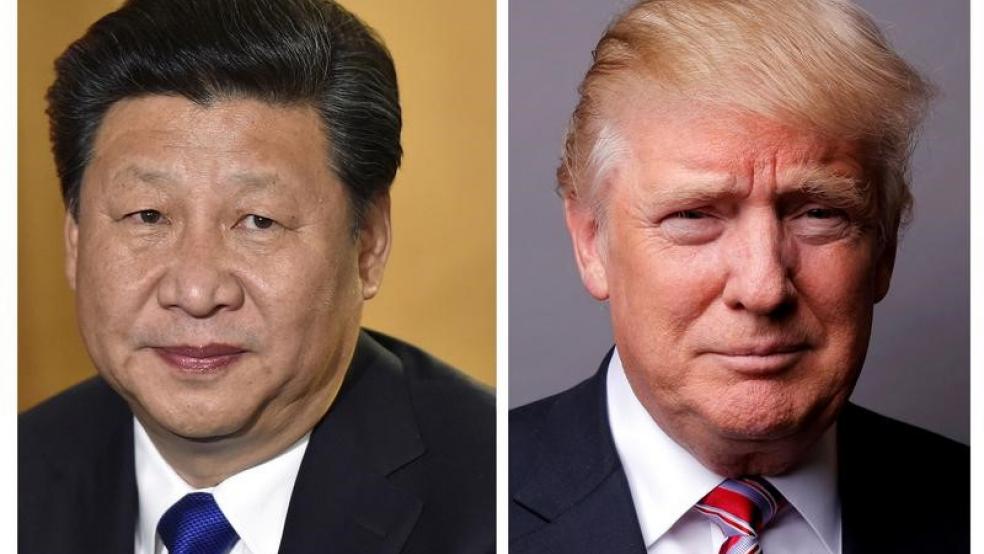The good news is that war didn’t break out on the Korean peninsula over the weekend. The North Koreans tried and failed to launch a ballistic missile, which may or may not have been electronically sabotaged by the US.
What the Kim Jong-un regime did not do, however, was test another nuclear device, something that many had feared would lead to retaliation from the Trump administration, where rhetoric against the North Korean government has become increasingly harsh. Right now, what appears to be happening is a very public version of the good cop, bad cop negotiating strategy.
The United States has enlisted China, North Korea’s only real ally in the region, reaching an apparent agreement with Beijing that the best outcome for everyone will be if North Korea abandons its attempts to secure a nuclear weapons delivery system that could strike the United States.
Related: The US Plan to Neutralize North Korea Doesn’t Involve the Military
With both governments in agreement on the goal, they are approaching it in markedly different ways, with the US adopting the role of the bellicose “bad cop” while Chinese President Xi Jinping, calling North Korea to the negotiating table, plays the role of “good cop.”
Vice President Mike Pence was the latest US official to take an aggressive stance toward Pyongyang. While visiting US ally South Korea over the weekend, Pence warned that Washington’s attitude toward North Korea has changed sharply. “The era of ‘strategic patience’ is over,” he said, echoing similar comments by Secretary of State Rex Tillerson last month.
But while Tillerson’s statement signaled a change in US policy toward North Korea, Pence’s came after the US had launched two high-profile military assaults on targets in Syria and Afghanistan, both in their way unprecedented escalations of force by President Trump.
Pence made sure they didn’t go unnoticed when, wearing a leather bomber jacket, he made an unannounced visit to the Demilitarized Zone that separates North and South Korea.
Related: Why North Korea and Syria Are Bigger Than the Mother of All Bombs
“Just in the past two weeks, the world witnessed the strength and resolve of our new president in actions taken in Syria and Afghanistan,” he said. “North Korea would do well not to test his resolve or the strength of the armed forces of the United States in this region.”
One of the great worries associated with taking action against North Korea would be the ability of the Kim regime to retaliate against South Korea. The greater-Seoul metropolitan area, which is home to up to 20 million people, is only a few dozen miles from the DMZ, and could be targeted by the North’s arsenal of short and medium range weapons, including suspected chemical compounds and possibly some sort of nuclear retaliation.]
Pence recognized that by describing the United States’ “iron-clad and immutable” commitment to the South Korean people. However, he added, “all options are on the table” when it comes to forcing change in North Korea. If the North were to attempt a nuclear strike, Pence said, the US response would be “overwhelming and effective.”
Related: Trump’s ‘Tough Guy’ Foreign Policy Falls Flat with Russia and China
In sum, the message to North Korea wasn’t exactly one of sympathy and willingness to talk. That was left to the good cop: China.
The Chinese Foreign Ministry’s spokesman, Lu Kang, tried to calm the waters in a press conference Monday. “As declared repeatedly, the current state of the Korean peninsula is highly complicated and highly dangerous.”
He added, “The point we have consistently made is that each country involved should refrain from behaviors that provoke one another and fuel their tension further and that they should make efforts to ease the tense situation on the Korean peninsula.”
Lu said the government in Beijing wants to restart multiparty talks that dissolved in 2009, and pointed out that the Chinese government and the North Korean government have some common interests that could be addressed in such a forum, such as the deployment of US missile defense batteries in South Korea, to which both countries have objected.
Related: Here's How Much the 'Mother of All Bombs' Costs
It’s unclear whether restarting negotiations might actually lead to the elimination of the North Korean nuclear weapons program. The Kim regime has repeatedly evoked the fate of Libyan strongman Muammar Gaddafi, who voluntarily surrendered his stock of weapons of mass destruction, only to be overthrown in a revolution shortly thereafter.
If nothing else, though, the promise of a sit-down around the negotiating table might be enough to take tensions on the peninsula off the boil for a period of time.





